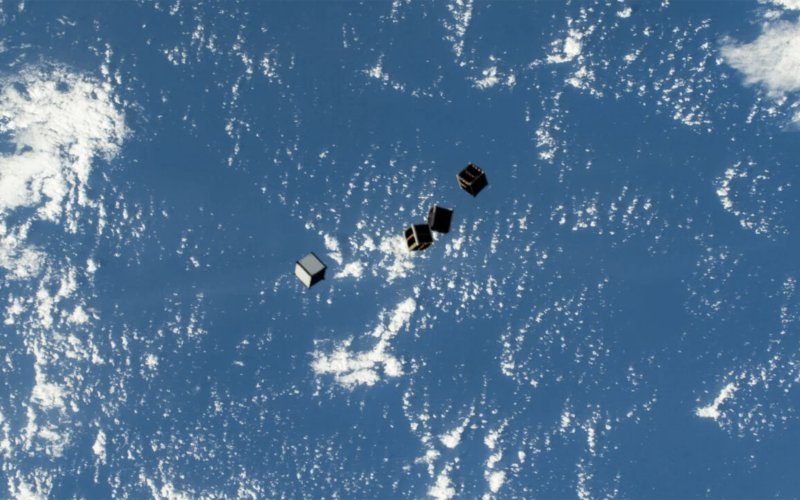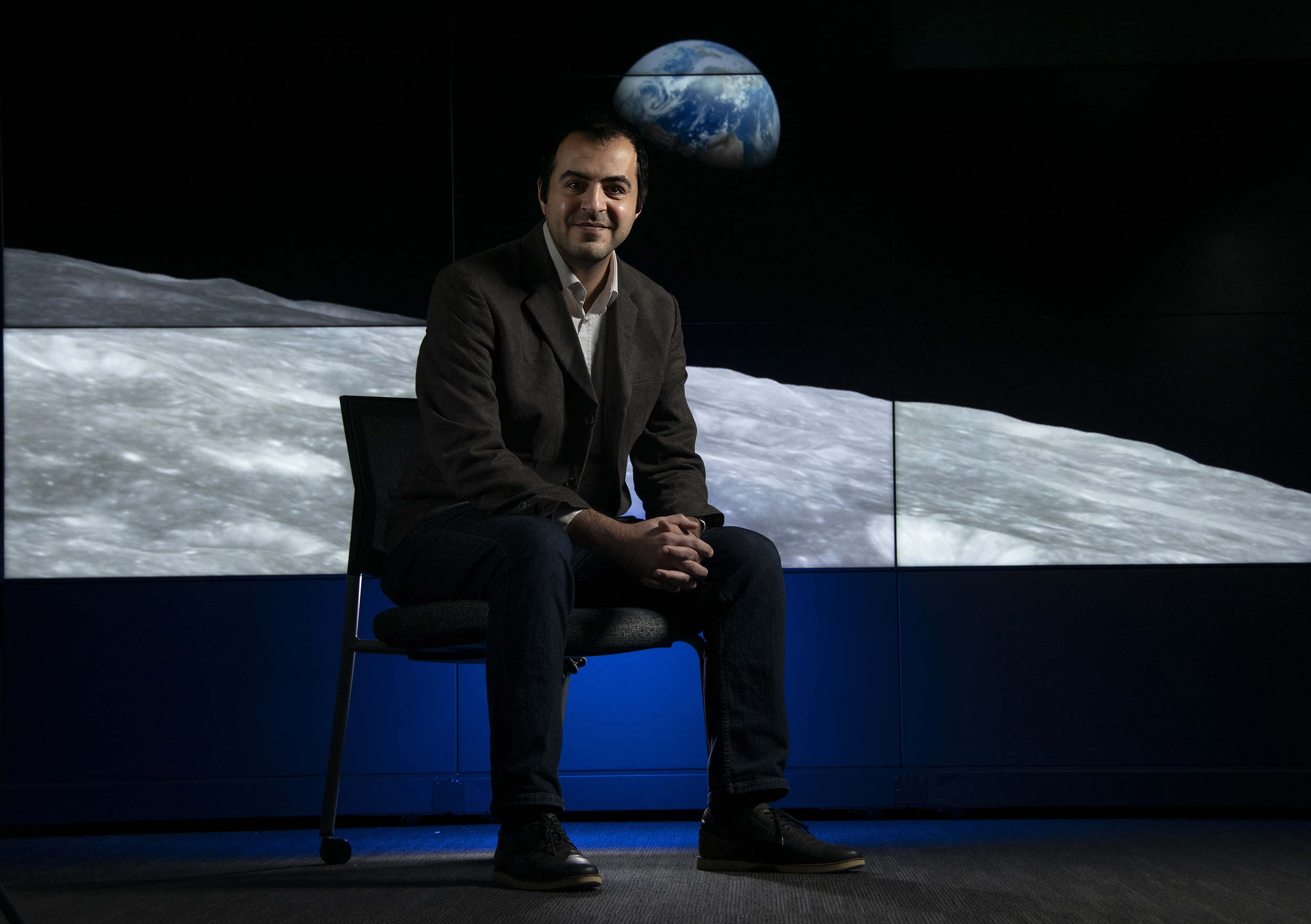Tiny Satellites are Changing Space Exploration, Aksoy writes in 'The Conversation'

ALBANY, N.Y. (Oct. 3, 2024) — UAlbany scientist Mustafa Aksoy explains how CubeSats — satellites so small they may fit in your hand — are having an enormous impact on space exploration in an article for The Conversation.
"Most CubeSats weigh less than a bowling ball, and some are small enough to hold in your hand," writes Aksoy, an assistant professor in the College of Nanotechnology, Science, and Engineering. "But the impact these instruments are having on space exploration is gigantic. CubeSats — miniature, agile and cheap satellites — are revolutionizing how scientists study the cosmos."
The article, published on Sept. 27, details how CubeSats offer an affordable alternative to the large, expensive satellites that have been traditionally used by NASA to explore planets, moons or the furthest reaches of our Solar System.
"Rather than carry many instruments with a vast array of purposes, these Lilliputian-size satellites typically focus on a single, specific scientific goal — whether discovering exoplanets or measuring the size of an asteroid," writes Aksoy. "They are affordable throughout the space community, even to small startup, private companies and university laboratories."
Aksoy, who joined CNSE's Department of Electrical and Computer Engineering in 2017, was previously a post-doctoral research associate at the University of Maryland Baltimore County and the NASA Goddard Space Flight Center.
His research interests are in remote geophysical sensing using microwave technology and electromagnetic theory.
The University at Albany is an institutional member of The Conversation, a nonprofit, independent news organization that seeks to produce trustworthy, informative articles written by academic experts for general audiences. Articles written for The Conversation appear in regional and national news outlets such as Popular Science, CNN, the San Francisco Chronicle and many others.
Researchers have recently written about topics such as the rapid intensification of hurricanes and the ancient discovery of popcorn.
Faculty interested in writing for the publication are encouraged to reach out to the Office of Communications and Marketing.





